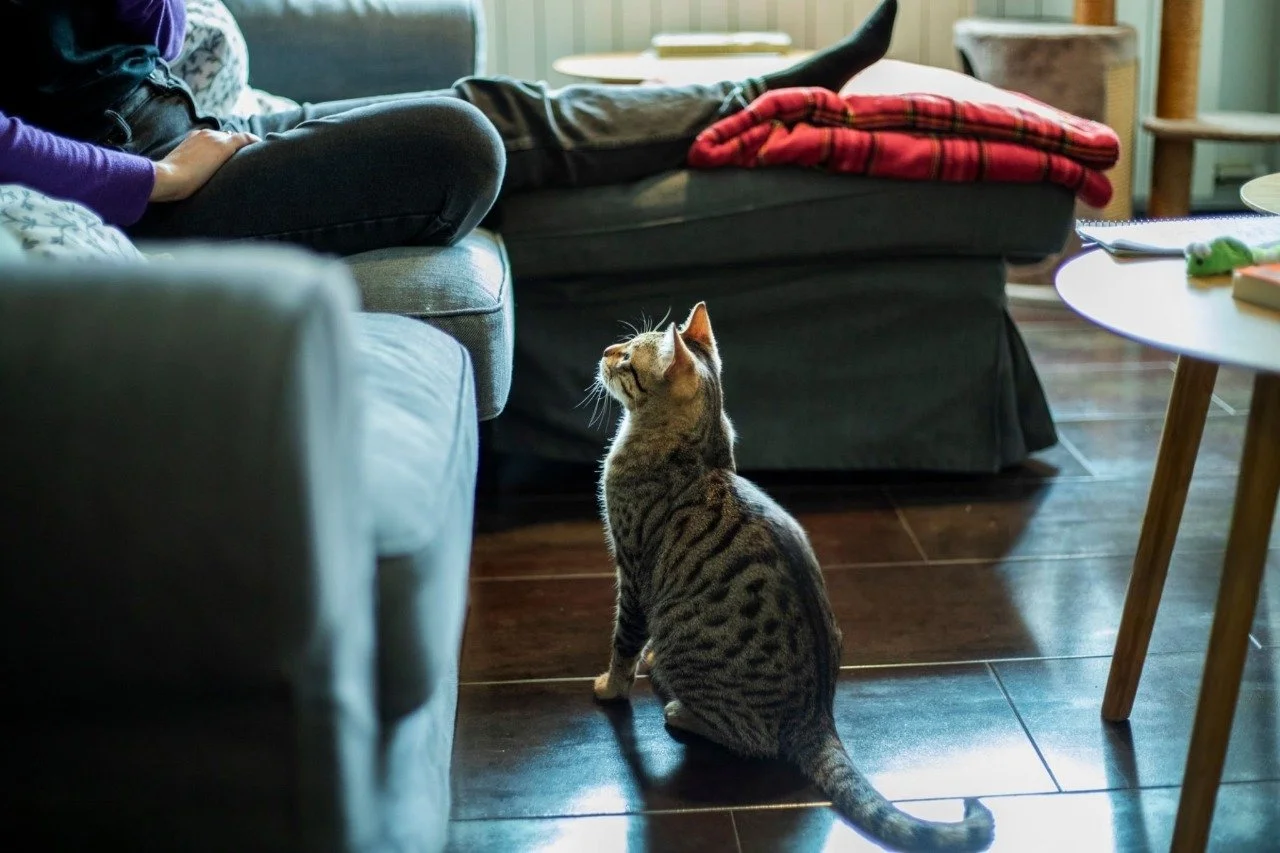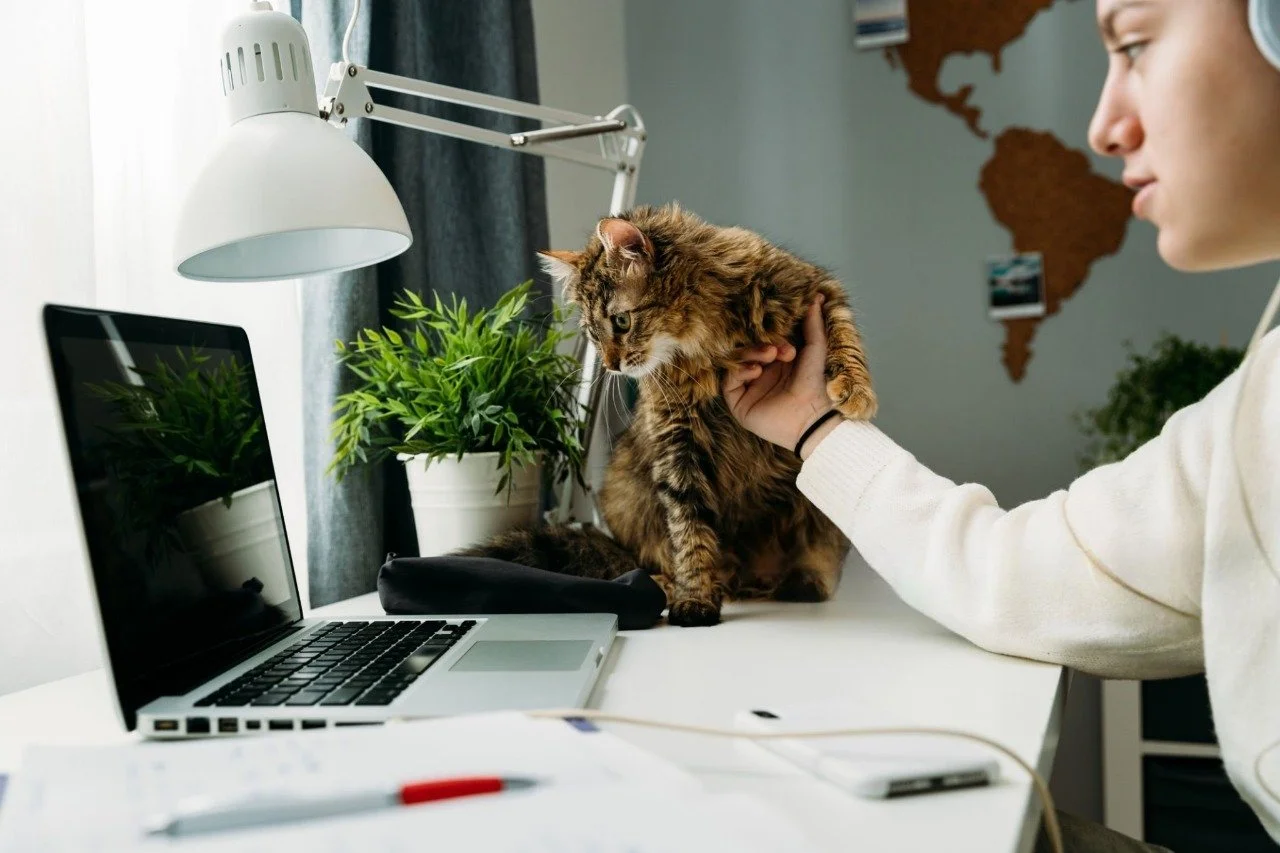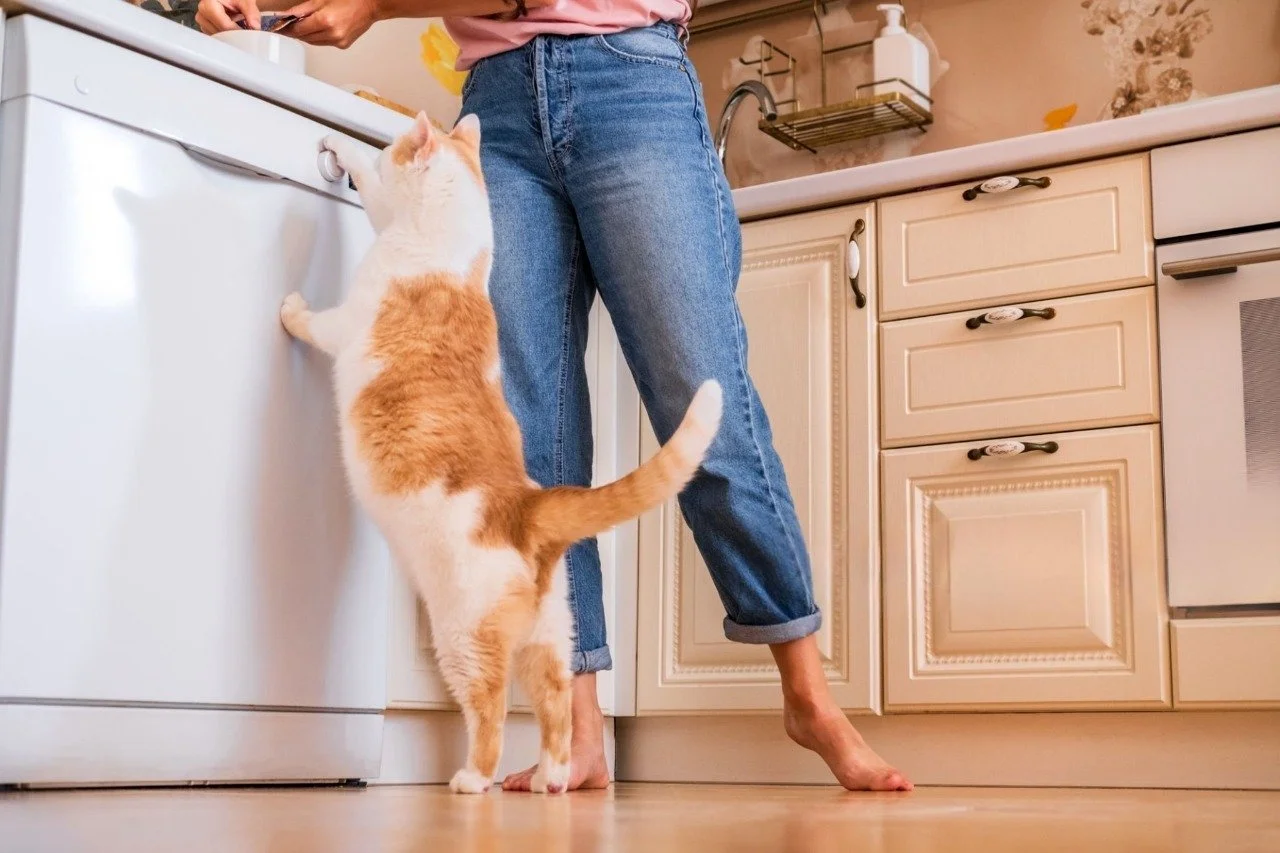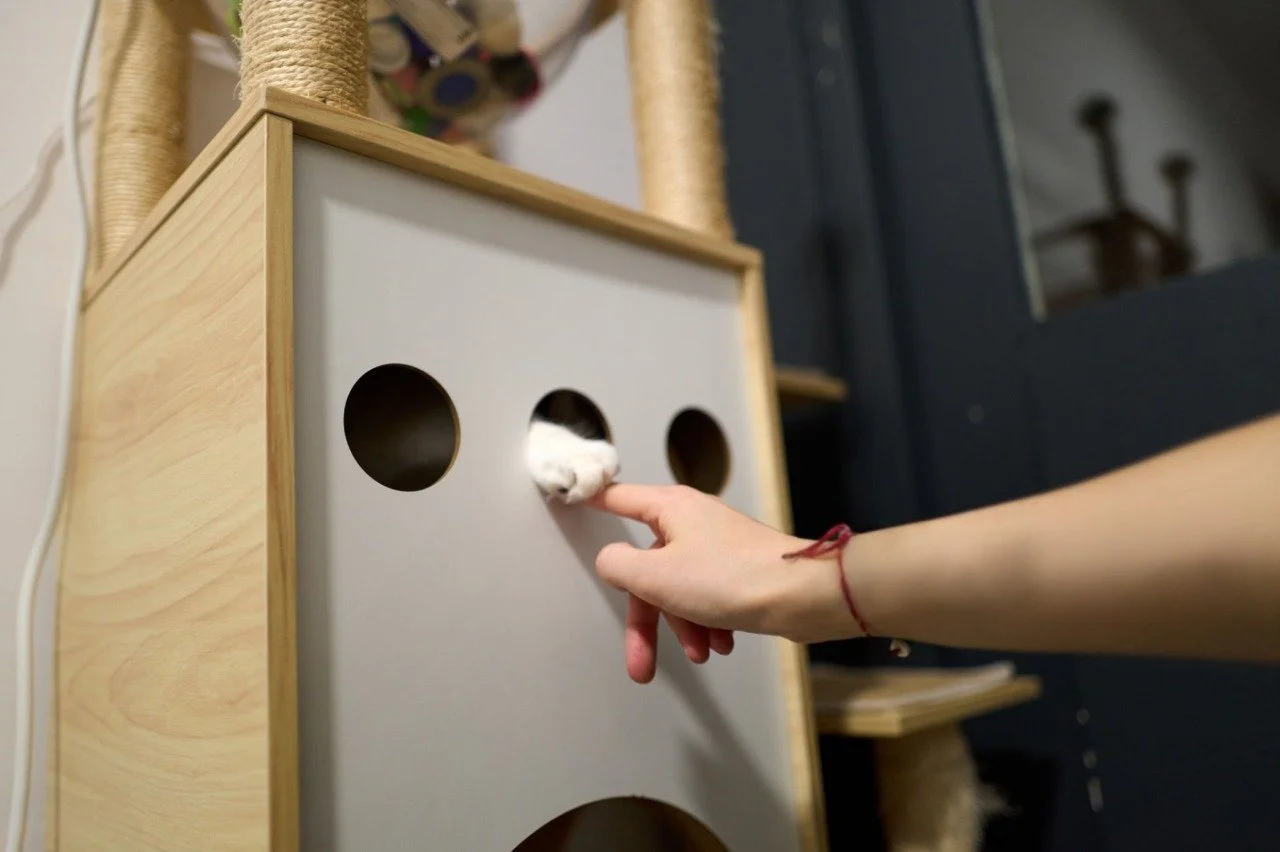Why Is My Cat Always Following Me? Here’s What It Really Means
If you’ve ever tried to walk to the kitchen and found a pair of curious eyes and a twitching tail right behind you, you know what it’s like to have a feline shadow. Maybe they weave between your legs, hop onto counters to keep you in sight, or insist on sitting in the bathroom while you brush your teeth. While it might feel like pure clinginess, there are actually fascinating—and sometimes important—reasons behind this common cat behavior.
Understanding why your cat follows you everywhere can help you strengthen your bond, give them what they need, and even spot early signs of stress or illness.
1. Bonding and Affection
Cats form deep bonds with the humans they trust. In multi-cat colonies, bonded cats will often follow each other, groom one another, and rest in close proximity. If your cat follows you from room to room, it may simply be their way of saying, “I feel safest when I’m with you.”
In the wild, cats that trust one another often stay close for safety, warmth, and resource sharing. Your cat may view you as a key member of their social group, so sticking nearby is part of maintaining that bond. This behavior is especially common in cats who were well-socialized as kittens or who have had consistently positive interactions with their people.
Signs your cat is following out of affection:
Relaxed body language while trailing you
Quiet following without demanding behavior
Choosing to rest near you once you settle in
Pro Tip: Give them attention when they seek it, but also let them decide when to interact. Respecting their boundaries strengthens trust!
2. Curiosity and Supervision
Cats are born investigators. If you leave the room, your movement sparks their instinct to find out what’s going on. They want to know where you’re headed, what you’re doing, and if there’s anything worth sniffing or pawing at along the way.
Some cats also take on the role of “house manager,” following you to supervise tasks like making coffee, folding laundry, or taking a shower—you know, the important stuff. They may poke their head into shopping bags, try to climb into suitcases, or watch you closely while you work on the computer.
Did You Know? The closed bathroom door is irresistible to many cats because it limits access to “their” territory. From their perspective, you’ve shut them out of an important event.
3. Territory and Routine
To your cat, you’re part of their territory—one they like to keep a close eye on. When you move, they may feel the need to move with you to maintain their sense of security.
Cats also thrive on routine. Their internal clocks are surprisingly accurate, allowing them to anticipate events like feeding, playtime, or bedtime based on environmental cues. If certain parts of your day tend to lead to something they enjoy, they’ll start following you during those times in anticipation.
Common routine-linked reasons cats follow you:
Morning coffee = time to be fed
Evening couch time = lap nap opportunity
Heading to the kitchen = possible snack
4. Food, Play, and Rewards
Sometimes following is simply learned behavior: if they’ve trailed you before and it’s resulted in a treat, a toy, or attention, they’ll do it again. Cats are excellent at spotting patterns, so it doesn’t take many repetitions before they think, Human walking to kitchen = snack time.
This isn’t “manipulation”, it’s positive reinforcement at work. Cats learn quickly when a specific action gets them something they want, so following you becomes a habit.
Signs your cat’s following is reward-driven:
They vocalize or paw at you while following
The behavior is more intense around mealtime
They lead you to a specific location (like the food bowl or toy box)
Pro Tip: If you don’t want food-seeking behavior to escalate, feed and play at set times so your cat learns to anticipate rather than demand.
5. Boredom and Loneliness
A cat that doesn’t have enough to do during the day might make you their entertainment. Indoor cats, in particular, can become more dependent on their humans for stimulation. Following you might be their way of saying, I need something to do.
Without enough enrichment, boredom can turn into frustration, which can show up as excessive meowing, overgrooming, or destructive behavior. Offering a variety of ways for them to stay mentally and physically active can reduce attention-seeking following.
Enrichment ideas to keep them busy:
Window perches for bird watching
Cat trees or climbing shelves
Puzzle feeders or treat-dispensing toys
Daily play sessions with wand toys
Did You Know? Even 10–15 minutes of interactive play twice a day can reduce boredom-based behaviors in most cats.
When to Be Concerned
Following is usually harmless, but a sudden increase or change in how your cat shadows you could mean something’s wrong. Certain medical issues can cause clinginess—for example, hyperthyroidism can make cats more restless, cognitive decline can cause confusion, and pain may lead them to seek comfort from you.
Signs to watch for:
Following paired with excessive meowing
Change in appetite or litter box habits
Restlessness or pacing when you’re out of sight
If you notice these changes, schedule a veterinary check-up to rule out underlying health issues.
Helping Your Cat Feel Secure Without Constant Escort Duty
You can encourage independence while still meeting your cat’s needs by:
Giving them cozy resting spots in multiple rooms
Providing a variety of enrichment activities
Keeping a predictable daily routine
Ensuring they have safe, high places to observe you from a distance
FAQs
Is this a sign of separation anxiety?
Not always. Many cats follow simply because they enjoy being with you. But if they become distressed when you leave, consider consulting your vet or a behaviorist.Why the fascination with the bathroom?
Bathrooms are warm, enclosed, and smell like you. Plus, from your cat’s perspective, you’re doing something mysterious behind that door.Should I discourage my cat from following me?
Not unless it’s causing stress for either of you. Instead, offer enrichment so they have other ways to occupy themselves.Why does my cat follow me but not other family members?
Cats often bond more closely with one person, especially if that person is the primary caregiver for feeding, play, and affection. They might still like the rest of the family—just not enough to be their shadow.
Final Thoughts
Your cat’s tendency to follow you from room to room is usually a sign of trust, curiosity, or a desire for connection. While it’s important to watch for sudden changes in behavior, most of the time it simply means you’re a cherished part of their world. By understanding the reasons behind this shadow-like behavior and meeting their needs with affection, enrichment, and routine, you can strengthen your bond and enjoy the company of your little sidekick wherever you go.
Sources and Further Reading
Why Do Cats Groom Each Other? Vet-Reviewed Licking Behaviors & Reasons - Catster
Socialization and Fear Prevention in Kittens - VCA Animal Hospitals
Decoding Feline Body Language: What Your Cat Is Really Saying - Bryanna Kue on Medium
Cat Behavior and Training: Enrichment for Indoor Cats - VCA Animal Hospitals







